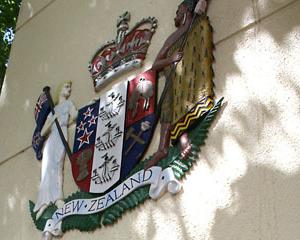Fairfax New Zealand Ltd group executive editor Paul Thompson today defended publishing extracts evidence of police surveillance of people suspected of terrorism.
Mr Thompson told the High Court in Wellington he did not consider, before publication, the possibility of infringing a section of the Crimes Act that protects against unauthorised disclosure of intercepted communications.
Fairfax and Dominion Post editor Timothy John Pankhurst are charged with contempt of court over publishing 13 extracts from a leaked 156-page police affidavit relating to police raids in the eastern Bay of Plenty last year.
The affidavit, which police used to get search warrants, contained excerpts of bugged conversations, all of which were suppressed by Chief High Court Justice Tony Randerson yesterday.
Mr Thompson told the court: "In terms of the material that we published, I believed that the suppression orders did not cover the material."
He became involved at 3pm on the day before publication, and was "generally aware" of suppression orders made in earlier bail hearings for people charged under the Arms Act.
Mr Thompson was asked by Solicitor-General David Collins, QC, whether he would make the same decision again knowing the information now available to him now.
"It's impossible to do what you're asking me to do," he replied.
Dr Collins pressed him: "You might feel reluctant to answer the question...the answer is yes or no? Would you publish or not publish?" Mr Thompson: "It may change my thinking in a hypothetical situation".
Dr Collins has argued the publication interfered with the administration of justice by damaging the chance of a fair trial for the 16 people charged at the time with firearms charges.
The case was about the courts, "not journalists, not newspaper editors", deciding whether material would damage a person's right to a fair trial, he said.
"The articles were the most serious and inexcusable breaches of an accused's fair trial rights that this country has ever seen," he said.











